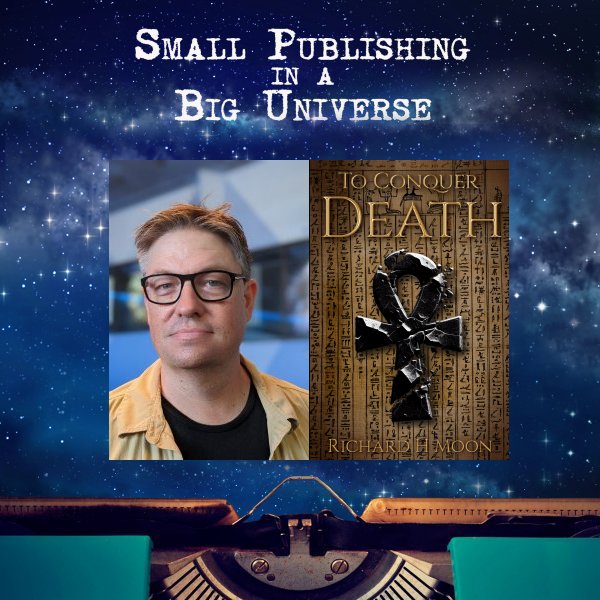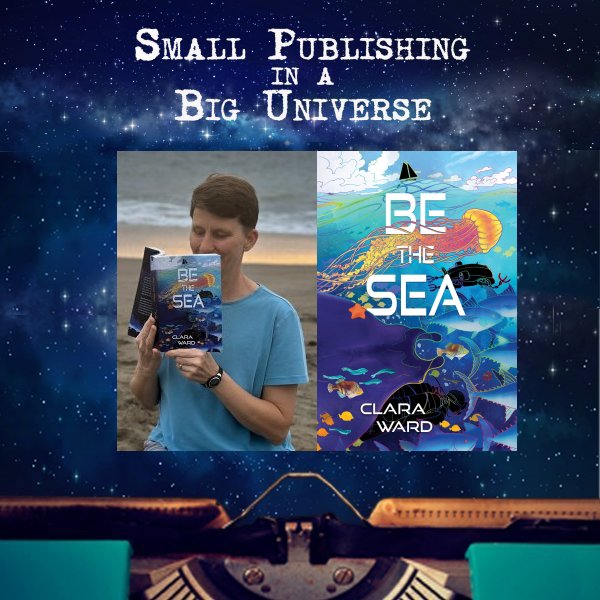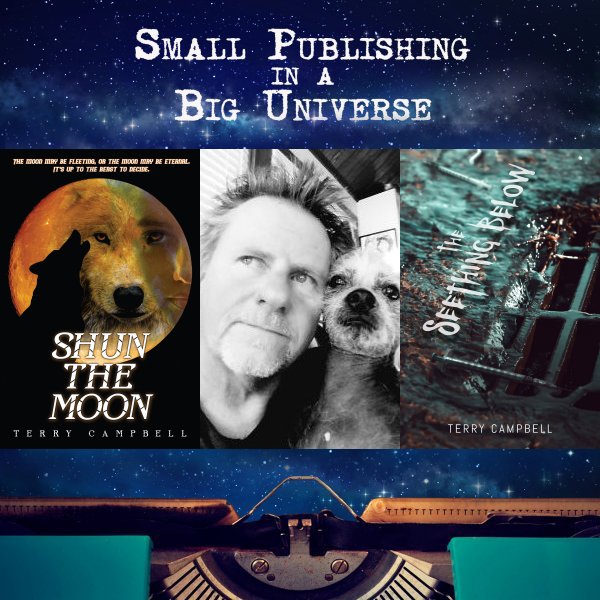Episode Transcript
-- [00:00:11] LJ: And welcome to Small publishing in a big universe. I am your host, Lisa Jacob. We would first like to give a big thank you to all of our listeners. We've gotten to 1000 unique downloads. Thanks everyone. And remember, if you have an idea for topics for our podcast, go to our contact Us page at sPBU Podcast.com. We're looking for agents, small publishers, self publishers, and editors to interview, so drop us a line if you're interested. This month we have editor Ira Naman. We talk about editing and what editors expect from authors. Coming from Water Dragon Publishing.
This month is The Ceres Illusion by, Susan Eaton and The Future’s So Bright. And at the Truck Stop this month: Better Angels Tour de Force by Stephen D. Brewer. Take a look at our Marketplace this month, SPBU Marketplace.com, to see some of the products and services featured here on the podcast.
[00:01:25] Speaker B: The Ceres Illusion by Sue Eaton
Something is definitely rotten in the experimental settlement on Ceres. Jax wonders how it will affect her and her colleagues when along comes Nan and shows her a side to the complex she did not expect. Together, the two young women work to break the control of the aliens, have over the human settlers, and begin to form the foundations of a fair community.
Available in trade paperback and hardcover at Amazon, Barnes and Noble, and Bookshop.org. Digital editions are available on Kindle, Kobo, Apple Books, Nook, Smashwords, and Google Play. Download a sample at Water Dragon Publishing.com.
[00:02:20] LJ: Welcome to Small Publishing in a Big Universe. I am your host, L. A. Jacob, and I have with us Ira Naman. He is an author and an editor of a whole series of anthologies, and he is also an author of a story that is in Water Dragon Publishing's Dragon Gems Fall Issue.
[00:02:43] IN: Thank you so much. Thank you for having me.
[00:02:45] LJ: First of all, let's put your editor hat on. So we're going to ask you first. Some questions about you're an editor.Why are you so mean? Which we mean to say, why do You think writers have an adversarial relationship?
[00:03:00] IN: I do not believe that editors and authors should have an adversarial relationship. I think that the ideal relationship between the editor and the author is one of—kind of what was rattling around in my brain when I talked about that.
[00:04:42] LJ: The second question is, how do you usually approach a manuscript? What do you look for?
[00:04:48] Speaker D: First, the idea that I am looking for two qualities, surprise and delight. And surprise and delight are kind of my watchwords as a writer. So I kind of carried them over into my editing duties. What do I mean by surprise and delight? Well, the first thing is, I want to read something that I haven't read before. I want to be Surprised. I want you to take me into a new place, show me something new about human behavior. Just something that isn't the same old, same old. And delight. Delight. Surprise usually works at the level of story. So I want something new in the story. Delight is the way the story is told. I want to hear an original voice. I want you to use language in a new way. I want you to tell your story in a way that's really fun to read.
Now, my background, of course, as a humor writer, I put a lot of store on fun. I don't want big slogs. So, for instance, if you're the kind of writer who writes hard science fiction with a lot of info dumps, maybe that's not for me. Maybe you should be looking at a different market. And let me tell you, I know Rob Sawyer. And somebody asked Rob Sawyer once, why do you spend so much time writing about the technologies, basically info dumping, in his novels? And he said, and I can't fault him for this. My readers expect it. He's writing to his audience. So I know that there is an audience for that. It's just not me.
[00:06:18] LJ: When I was doing the slush pile, if they didn't format the thing correctly, I tossed it. Is that a valid reason to say no and we are not accepting this?
[00:06:29] IN: Yes, and I'll tell you why. Because at amazing stories, in the almost three years that I was there, we had something like 4000 submissions. Now of those 4000 submissions, there may have been three or 400 stories that were top notch A rated. I would have been happy to publish all of them. In the seven issues that I published, we maybe got 100. So now I'm having to reject stories that under other circumstances I would have— Guidelines, guidelines, guidelines. I can't repeat that enough, but there Is actually something else. I was thinking about this, and one of the things that doesn't happen that often, but happens often enough that I think it's kind of weird is: make sure your manuscript is consistent. What do I mean by that? So I've looked through stories where there have been literally six or eight different kinds of dashes within a single story. Sometimes the format will be the end letter of one word and a single dash and the beginning letter of another word, or it'll be a double dash, or there'll be a space after the dash, or there'll be spaces before and after the dash. And this signals to me that you're not serious. Those are things. I don't care which version you use. If you don't use the version that I use, I can just find and replace it very quickly. If you've got half a dozen different versions of that, or a half a dozen different spellings of important words, or whatever, what you're showing me is that you're not willing to do the work of making sure that the manuscript is up to speed, to actually send out to professional venues. And again, that's one of those. It's a small detail, but it's the kind of small detail that will make the difference between a sale or not a sale. So you really have to make sure that your manuscript is as polished and finished as it can be before you start sending it out.
[00:09:48] LJ: Great advice. Yes. If you could fix the English language, what would you change?
[00:09:53] IN: I'm a bit of a typography nut. There was a time when I was at university and I was contributing to my student newspaper. I remember just sitting in the office late one night going through a book of type styles. This was before we had the Internet where I could look at them, and—I love, love type, and I use it a lot in my writing. Different type styles. I'll give you an example. In my second novel, you can't kill the multiverse, but you can mess with its head. There are at least twelve different fonts that I use, and in one chapter In particular, there is a character. The character is an artificial intelligence that's made up of different small modules that compete to determine how the artificial intelligence overall is going to behave. And each one has a personality. And I set myself up a problem. So how do I name the different personalities? When they speak, they're all one creature. So I didn't want to give them different names, because that would make you—this, and I really, really want to sort of allow writers, and allow myself as a writer to be more creative. That's one thing. I'll give you another thing, because, again, this is in the same field, but it also drives me nuts. There are a lot of publishers who only want their writers to use the verb “said” to say for every speech act. And I've seen stories where that's pretty much the only verb. Even when somebody is asking a question, they said it, they didn't ask it. And that is an artificial constraint that really drives me nuts, because there are so many words in the English language, and each word has a slightly different meaning, slightly different connotations to it, so you can impart information to the reader just by the verbs that you use. And so because the publishing has gotten so strict about things like this, it's really limiting how writers can express themselves fully. And I understand why they have this. Because, frankly, writers went crazy nuts with the verbs, and we're using them in a lot of inappropriate or inelegant ways. So I understand why, but I think this pendulum swung far too far in the conservative direction, and I'd like the pendulum to swing back a little so that we can have a little more variety. The last thing I promise that I will say on this subject is I love the interrobang. I'm on a one man mission to bring the Interrobang back into use. Now, for people who are not familiar with it, the interrobang is a punctuation mark that combines a question mark and an exclamation mark into one punctuation mark. Because when you have a character saying something like, are you serious? You have to make a choice between a question mark or an exclamation mark. What's more important, the question or the fact that they're shouting it at you, or what some writers do, but I find this really ineloquent, is that they have both. They'll have the question mark and then they'll have the exclamation mark, which I find kind of ugly. But there is an actual punctuation thing that you could use to do both. It's great. And so I'd really love to see more of that in people's writing.
[00:14:32] LJ: What do you find that authors tend to do wrong and right consistently?
[00:14:40] IN: I'll be honest with you. At Amazing Stories, of course, I did have slush readers because I could—to spread those voices as far as I can as an editor.
[00:16:37] LJ: How long do you think it'll be before AI takes over your job?
[00:16:41] IN: One of my projects is the alternate reality news service. They send
reporters into other dimensions and they report on what they find there. I write alternate reality news service articles for my website and then collect them eventually in print anthologies, and there are now 13 of them. So I've written a lot of them over the years. In the latest collection, which is called When The Soft Sciences Get Positively Runny, there is a special report on artificial intelligence. Literally 30 of the 80 articles in the book are on how artificial intelligence is worming its way into all sorts of different areas of our life. It blows my mind just how quickly it’s infiltrating all of these different things. And in fact, I've already started collecting newspaper articles on new things that I haven't written about, new uses of AI—that I haven't written about. So I'm going to continue to write about this stuff. The thing about AI is that AI has actually been taking people's jobs for a long, long time. Think, for instance, about the robots on car assembly lines which have replaced auto workers. The thing is, the white collar workers, the middle managers and the bosses, they, though, well, it's going to get rid of blue collar jobs, but it's never going to affect the white collar worker. Now, of course, that is exactly what AI is coming for. I have no doubt that there will be AI writers. There will be stories written by AI. A lot of the best known science fiction magazines have vowed that they will not take AI written stories. They want stories from actual human beings, which I think is admirable. I don't know how long they're going to be able to pull it off. Right now. AI stories are terrible. They suck. It's easy to see them, spot them, know that they were written by an AI, and therefore it's easy to dismiss them. I'm going to keep editing because I haven't lost all that much by it happening. It's very rare, actually, but there are people who can make a living off of selling short stories, just short stories. It's extremely hard. You have to really write a lot of them to make enough money to live off of. But the occasional person can do it. They will have a problem. Some publications actually pay their editors a living wage. They can make enough money off of it.They might have problems. For the rest of us, we're doing it for the love, and so we're going to keep doing it because we keep loving it. So that part of it isn't going to change.
[00:21:20] LJ: Thank you very much, Ira.
[00:21:22] LJ: Thank you.
[00:21:36] Speaker C: From Water Dragon Publishing comes The Future’s So Bright. Come along with our authors as we explore the hopeful side of the future. From all the good things provided by advanced AI to the innocence of exploring new worlds. Join our authors as they present uplifting stories of science fiction and fantasy. For more information, see waterdragonpublishing.com futuresowbright.
[00:22:17] LJ: Thanks again to our guest. We plan on publishing new episodes every. second Wednesday of the month. Watch for new episodes around that time. To find out more about our featured products and books mentioned by our guest, please take a look at the SPBU Marketplace at SPBU Marketplace.com. Theme and ad music is provided by Melody Loops. If you want to know more about Small Publishing in a Big Universe, visit our website at SPBU podcast.com. Send us your feedback by using the Contact Us link, Tweet or X Us at SPBU Podcast and like us on Facebook at SPBU Podcast this podcast was recorded and edited by yours truly. L. A. Jacob Executive Producer is Stephen Redecki. Transcription Services provided by Lisa Jacob. This month's episode was sponsored by Paper Angel Press and its imprint Water Dragon Publishing and Unruly Voices.You can hear our podcast on Apple Podcasts, Spotify and Amazon Music, and most of your favorite podcast services. Thank you very much for listening and talk to you soon.


